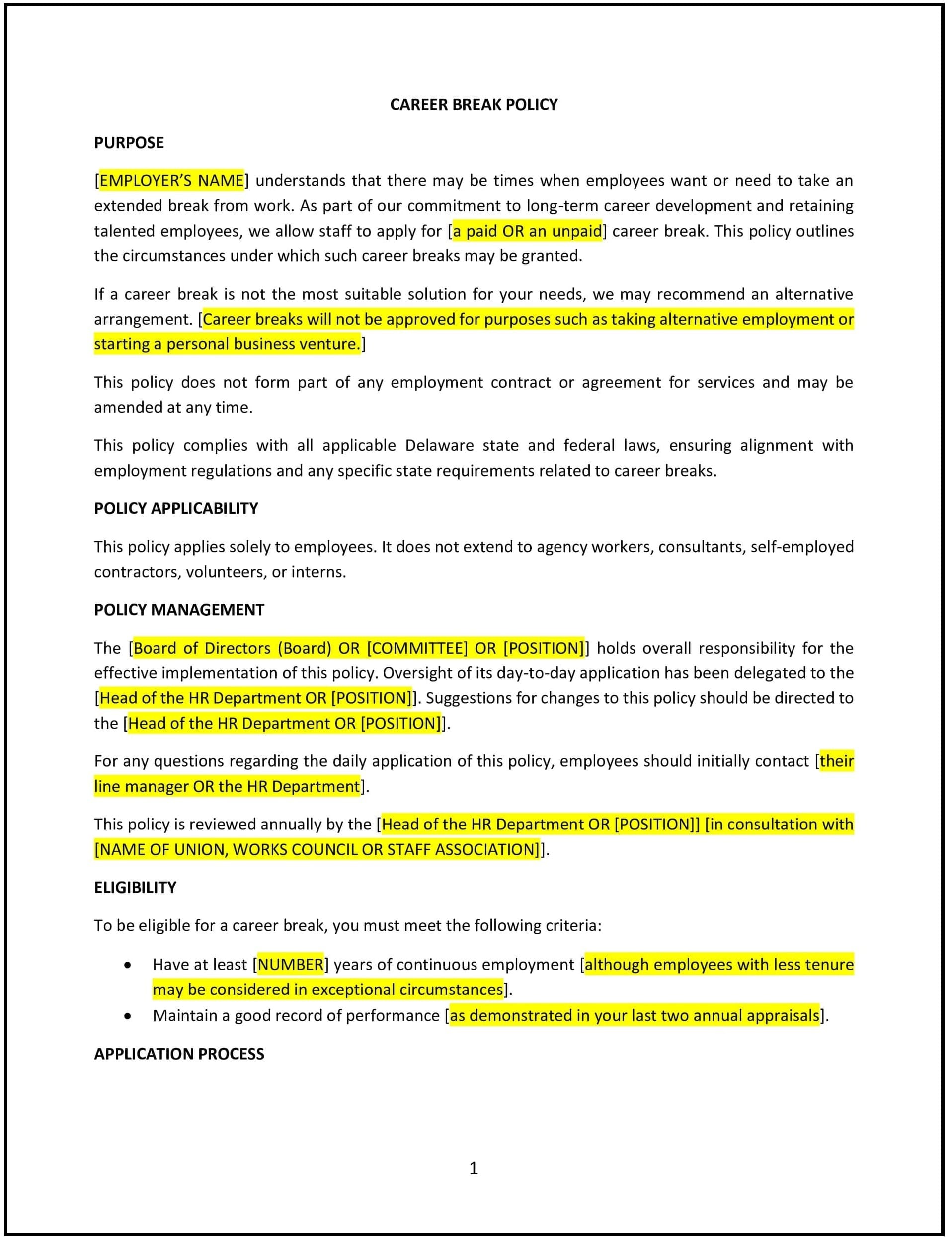Got contracts to review? While you're here for policies, let Cobrief make contract review effortless—start your free review now.

Customize this template for free
Career break policy (Delaware)
A career break policy helps Delaware businesses provide employees with the opportunity to take an extended, unpaid leave of absence to pursue personal goals, such as further education, travel, caregiving, or other interests. This policy outlines eligibility, application procedures, and the terms for maintaining employment during and after the break.
By implementing this policy, businesses can promote employee well-being, enhance retention, and foster a supportive workplace culture.
How to use this career break policy (Delaware)
- Define eligibility: Specify which employees are eligible for a career break, such as those with a minimum tenure or in good standing with the company.
- Outline application procedures: Explain how employees should request a career break, including required notice periods, documentation, and approvals.
- Set duration limits: Clarify the minimum and maximum length of a career break and any conditions for extensions.
- Address job security: Indicate whether employees will return to their original role, a similar position, or be subject to available opportunities upon their return.
- Manage benefits: Provide details on how benefits, such as health insurance or retirement plans, will be managed during the career break.
- Communicate expectations: Set guidelines for maintaining communication during the break and the steps for returning to work.
Benefits of using this career break policy (Delaware)
This policy offers several benefits for Delaware businesses:
- Enhances employee retention: Allows employees to take time off to pursue personal goals while maintaining their connection to the company.
- Promotes work-life balance: Supports employees’ personal growth and well-being, fostering a positive workplace culture.
- Improves morale: Demonstrates the company’s commitment to flexibility and understanding of employees’ needs.
- Reduces turnover: Encourages employees to return to work after a career break rather than seeking opportunities elsewhere.
- Aligns with best practices: Provides a structured framework for managing extended leave requests consistently and fairly.
Tips for using this career break policy (Delaware)
- Communicate the policy clearly: Ensure employees are aware of the eligibility criteria, application process, and terms of the career break.
- Review requests individually: Assess each request based on operational needs and the employee’s circumstances to ensure fairness.
- Provide transition support: Assist employees with handing over responsibilities before their break and reintegrating when they return.
- Maintain flexibility: Be open to adjusting the policy based on changing workplace dynamics or specific employee needs.
- Review regularly: Update the policy periodically to reflect changes in Delaware laws, industry trends, or organizational needs.